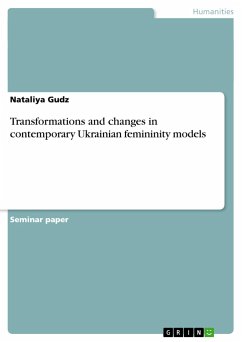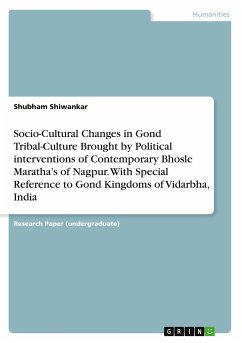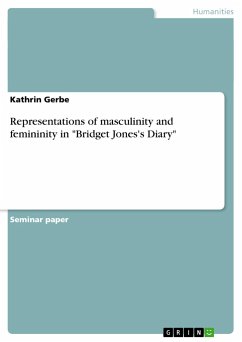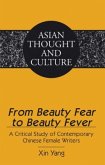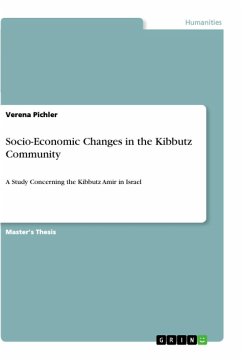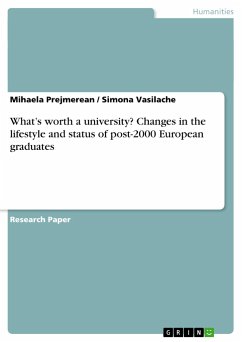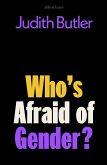Seminar paper from the year 2004 in the subject Sociology - Gender Studies, grade: 1,7, Otto-von-Guericke-University Magdeburg, course: Gender Issues in Contemporary Russia, language: English, abstract: After the declaration of the Ukrainian independence and fall of the "iron curtain" the awareness of the Ukrainian women was drastically changed. Ideologically guided canon of femininity - "a Soviet super-woman" as "a working mother" - has lost its actuality; in the 1990s it was changed by new life standards, behaviour models, values and moral norms. At once the nationalist movements appeared on the scene and demanded to design and maintain national identity with articulation of basic concepts of nationality. In Ukraine this process was socially defined through the modern reconstruction of patriarchy supported by the educational system, mass media, political discourse, and legislation. Having recognised Ukrainian as the official language, Ukraine began moulding ideology constructedon the conception of the pre- Revolutionary Ukraine. The entangled images of the Cossack republic and the image of Ukraine as Mother, together with vital revival of Orthodoxy, strengthened patriarchy in politics, social order and cultural structures of the modern Ukrainian society. However through economical crisis and society instability, the image of Mother-Protector correlated with the historical past and traditional culture of the Ukrainians was shifted from its key position by unfamiliar before, but rather appealing "Western models of femininity". In this paper we try to find out how all these images of femininity were created, maintained and transformed through the recent years.

